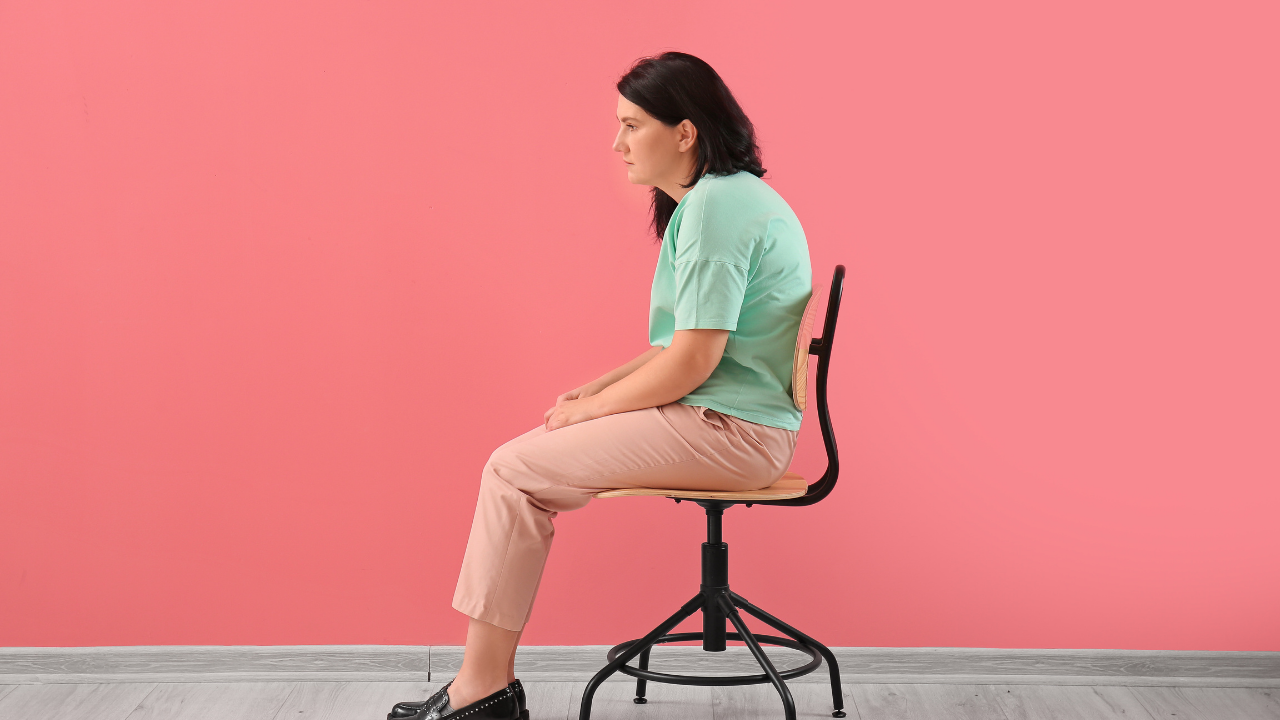“Never bend your head. Always hold it high.
Look the world straight in the eye.”
Helen Keller (deaf and blind disability rights activist)
When I was a kid, my mother nagged me incessantly about my posture. Stop slouching Kate, put your shoulders back and stand tall. Be proud of who you are!!”
Your ‘demeanour’ is often the first thing people notice about you. Your emotions leak through into the way you hold yourself, and if you’re not careful you can get trapped in a cycle of where your posture feeds back into your emotions and maintains unhelpful thinking and behaviours.
A poor posture feeds into poor emotional wellbeing.
A good posture feeds into good emotional wellbeing.
The link between posture and good mental wellbeing is common sense, though under-researched. A depressed person will automatically make themselves appear physically smaller. Their thinking and self-belief will not allow them to make their presence felt for fear of social judgement and criticism.
Think of a wallflower at a social gathering. The wallflower’s crippling shyness and anxiety keeps them pinned against the wall and away from the main action – they are observers, not participants. Because they demand no attention, because their posture reflects this thinking, then their current situation feeds from, and maintains, this same narrative.
Someone with depression often reports physical symptoms to describe how they are feeling. For example, there is a heavy slowness to their gait. They lack energy, have a lethargy that drags them down, causes aches and pains, and is reflected in a poor posture, that itself perpetuates those feelings of powerlessness and low self-esteem.
The depression becomes a self-fulfilling prophecy, and the depressed person gets caught up in his or her own cycle of depression.
But our bodies have an amazing ability to change our minds and thoughts.
Baby steps are required to encourage someone to adopt a more powerful way of holding themselves physically – but by changing that physical posture, real psychological changes can come about.
In the workplace, paying more attention to the posture of your colleagues at work will give you a good insight into their emotional wellbeing.
Someone who keeps to the background, doesn’t speak up, doesn’t make eye contact, minimises their physical impact on their environment, can appear shy and reserved, but it could be hiding something more.
Encouraging everyone in your organisation to improve their posture can not only help them in terms of protecting their physical health, but the hidden benefits can also improve their emotional health too. Implementing a company wide initiative of ‘standing tall’ and ‘shoulders back’ may seem and feel uncomfortable at first, but can lead to significant shifts in the self-assurance and self-belief of employees who might be lacking in confidence.
We are wandering into the territory here of ‘fake it till you make it’. But the power of challenging your thinking cannot be denied. If an individual who is struggling with self esteem is gently encouraged to stand tall, even for just a couple of minutes a day, it will demonstrate to them that they CAN do it. Even if they do it privately in safe haven of their own home.
Although there is not a significant amount of dedicated research in this area, there are a number of studies that compare the emotional states of participants who are measured with slumped or upright postures.
Overall, an upright, open posture was an important factor in:
- Maintaining a good, high self esteem
- Reducing negative moods.
- Increasing positive thoughts.
- Increasing the rate of speech (indicating attention and engagement on what is going on externally to self)
- Reducing self focus (indicating a reduced preoccupation with self examination/recrimination)
- Reduction in general fatigue and increasing alertness.
- Engendering on overall feeling of power and control in a situation.
Conversely, a slumped, closed posture indicated:
- A low self esteem.
- An increase in negative mood.
- Increasing negative thoughts
- A slowing of speech and longer silences.
- An increase in preoccupation with the self.
- Overall tiredness and a loss of concentration.
- Feelings of powerlessness.
All these findings were consistent with established theories that our muscular and autonomic states (the subconscious part of our body’s processes such as heart beat, blood flow, breathing etc) influence our emotional responses.
What this means is, that if you are feeling low, fed up, in a negative state of mind, then you have the innate ability to change this negative state by changing the way in which you physically hold yourself.
In fact, 92% of participants indicated that it was easier to generate positive thoughts when in an upright position.

